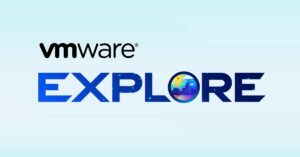
Open source has always been more than software. It describes an ethos, a way of thinking. It’s rooted in the foundations of the internet as Tim Berners-Lee proposed at CERN to develop a way of linking and sharing information. It’s a knowledge economy that is lived by online communities who collaborate to solve the world’s problems and that fosters innovations around the world.
It’s no longer the underdog solution either. Open-source software underpins the global economy and sits at the heart of most core infrastructure. 56 million developers contribute to open source projects around the world and 95% of organizations leverage open innovation practices. Open source may not be immediately obvious to a consumer. Nevertheless, it forms the connections we make with one another, shapes how we work remotely, streamlines the financial industry and how our payments are managed, and enables our smart devices on our wrists and at home. It’s even critical for your car’s safety system functions. Open source is everywhere.
A recent article by InfoWorld’s Matt Asay explored the times when openness doesn’t always matter, reminding us that proprietary strategies remain exceptionally profitable and that customers haven’t turned their backs on paid licenses and closed models. As Asay notes, “Apple’s $2.4 trillion market cap speaks for itself.” In essence, openness may carry moral weight, but pragmatics and profits sometimes tell another story.
However, I want to look at the other side of the coin. Demonstrating that proprietary strategies are not destined to fail is to miss the point. Beyond the balance sheet and individual strategy, the choices companies make are important. The reason open source always matters lies in its ability to foster collaboration, unite millions towards a common goal, and drive innovation like no other developmental approach.
The foundation for innovation
The transparency, interoperability, and rapid pace of development offered by the open source ecosystem has not only driven the widespread adoption of open source software, it’s made open source critical for companies looking to grow faster and stronger in today’s landscape. More tech companies, not less, are shifting to open approaches. We cannot forget too that many digital ecosystems on which proprietary models depend have their foundation in open source.
Kubernetes, for instance, would not have revolutionized the cloud-native space without the open ethos that powered its evolution and adoption. Google engineered an infrastructure that could grow at scale, and open sourced it to the community as Kubernetes. Now, through community scale and collaboration, Kubernetes and containers are supplanting numerous proprietary, lock-in cloud platforms as the de facto infrastructure to power digital transformation. Kubernetes and containers are enabling companies across all industries to deliver customer value faster with more flexibility. Additionally, the broad community collaboration is enabling industry suppliers of all sizes to deliver more capabilities at a lower overall cost. This is proof that a huge ecosystem can be built on an open source foundation, enabling profitability and growth for “open source” and proprietary companies alike.
Steps taken in the other direction to double-down on closed models may continue to serve a company well or net short-term benefits. However, not choosing to lead with open source could very well have an impact on the industry’s wider trajectory in the long-term success of a business.
Short-term gains vs. long-term progress
Efforts made to advance openness within the tech community can benefit not just the wider enterprise ecosystem, but also the company itself. Since the late 1980s, open source software has been fueling innovation and gaining credibility as more and more of the largest tech companies realized its vast potential to bring together the brightest minds from all over the world to solve challenges together as one.
But as Asay points out, a number of software companies have stepped back from open source licenses in recent years. The notion that Lightbend’s switch to a non-OSI approved license for its Akka program is a “sign of betrayal” does pose an interesting debate. It’s important to remember that Akka gained its popularity and widespread adoption as a fully open source solution—and arguably because it was fully open source. Had Akka begun as a proprietary solution under the company’s new licensing model, it would likely be an obscure, niche solution today. Ultimately, the customers will decide whether less openness is good or bad for Akka and Lightbend. While it’s too early to know the implications, we have seen backlash from the community.
Every company has a right to change its strategy, but the rarity of retreats from open source should tell you something. If you look at the technologies that companies are doubling down on—the technolgies that have massive industry implications, such as AI and machine learning—you’ll find that open source is the catalyst. AI is arguably the next fast-growing technology domain that will transform business, experiences, and lives, and the majority of AI platforms and toolkits are open source. Why? Because open source enables companies to incrementally extend or build upon these foundations to deliver new capabilities at accelerating rates.
A perfect example of this momentum in open source comes from Nvidia, which embraced the power of open source and updated solutions that were once proprietary, publishing its Linux GPU kernel modules as open source with a dual GPL/MIT license earlier this year. Another example is Meta handing governance of PyTorch to the Linux Foundation. While this wasn’t open sourcing something new, but transferring governance of the open source project from a single company to the community, it reinforces the power that a community driven approach has on innovation.
While enterprise customers may have a deeper understanding of the value of open source, individual consumers of technology also clearly grasp the benefits. An understanding of interoperability and ease of use has translated into calls for Apple to open its messaging platform. This same desire for open standards and interoperability has resulted in WhatsApp dominating the messaging market globally.
Community-driven innovation for all
At SUSE, we firmly believe that openness, not technology alone, must be rooted in the heart of all digital transformation to truly find success. In any case, if a company retains a proprietary model or alters its license without negative impact on either profitability or consumer adoption, this does not demonstrate that open source does not matter. The value of open source is not defined by individual strategic decisions or case studies in profitability.
As a development model and ethos, open source is a remarkable force for good. It harnesses collaboration for a common goal, facilitates innovation at an unmatched rate, and marks the direction of travel across the technology landscape—from emerging infrastructure technologies to AI and machine learning to consumer electronics. It’s clear that open source is driving innovation in every industry today—from retail, manufacturing, finance, and agriculture to space exploration. Open source is relied upon by companies and consumers around the world.
While there will always be those who feel that competitive advantages stem only from proprietary innovation, why not consider the powerful role that open source plays in our innovations today? I’m consistently in awe of the collective efforts of the open source community and the transparent, elegant, and interoperable innovations that emerge every day. As digital transformation accelerates further, open source software will only further cement its place in the development of tomorrow’s technologies and digital ecosystems.
Brent Schroeder is head of the office of the CTO at SUSE.
—
New Tech Forum provides a venue to explore and discuss emerging enterprise technology in unprecedented depth and breadth. The selection is subjective, based on our pick of the technologies we believe to be important and of greatest interest to InfoWorld readers. InfoWorld does not accept marketing collateral for publication and reserves the right to edit all contributed content. Send all inquiries to newtechforum@infoworld.com.
Copyright © 2022 IDG Communications, Inc.


